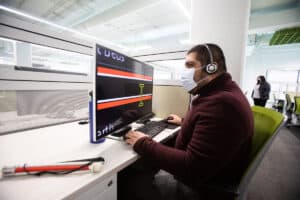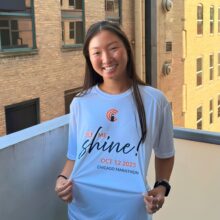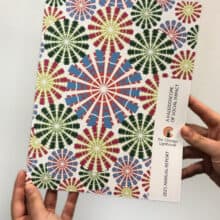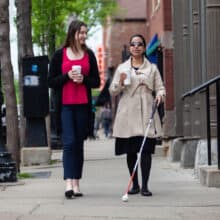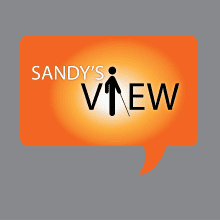My Top Three Advice Tips for Job Seekers with Disabilities
I have been in the workforce for the last seven years, but can still remember clearly the mixed feelings and thoughts that crossed my mind before the first job interview. As someone without sight, I had numerous questions and concerns others might not even think about. How would I learn to properly write and format my resume? Where could I meet other professionals who are blind and ask them for advice? What rights did I have as a job seeker with a disability? Before National Disability Employment Awareness Month comes to an end, I want to share my top three tips of advice for current and future job seekers with disabilities.
- Network with other professionals who have disabilities.
Just as it is important to learn about your career goals and interests, it is equally valuable to meet people who are working in these fields. When I was in journalism school, I started looking for other professionals who are blind or visually impaired in this field. More than anything else, I wanted to learn how they were able to do their jobs, any advice they might have, and about other resources they could suggest. I felt I could relate more to professionals with disabilities because they understood my concerns and could offer suggestions. Finding and networking with professionals who have disabilities is easier more than ever before. Various online groups and college offices for students with disabilities are great starting points. Creating a LinkedIn profile can help. You can also ask a professional to shadow them for a day so you will become familiar with the job duties.
- Seek help and advice from organizations for people with disabilities.
When I took some job readiness courses in high school and college, I learned a lot about successful job interviews, proper formatting and writing of resumes, and how to fill out a job application. These classes were tailored to sighted individuals, so it was not always easy for me to get the full experience. Shortly after graduating from college, I came to The Chicago Lighthouse’s Employment Services Program. The fact that some of the job placement counselors are themselves blind immediately made me feel at ease because I knew they could relate to my disability. I received one-on-one coaching on how to format my resume using assistive technology, tips about deciding whether or not to disclose my disability in job applications, how and when to request reasonable accommodations, and information about other community resources available to me as a person who is blind. I highly recommend that job seekers with disabilities look into these types of supports because they can be of great help during all stages of the job search.
- Learn about your rights and other community resources.
As people with disabilities, it is crucial for us to know what rights we have under the law and about other resources that can help us be productive on the job. Today, it is easy to research all this information online and learn what is available in your community. In my case, The Chicago Lighthouse’s Employment Services team was of great help in this area as well. By attending the program’s Job Club seminars, I learned about what rights I had under the ADA, different forms of public transportation available, and services offered by places like Chicago’s Mayors Office for People with Disabilities. Even if you do not feel you might need specific information at the time, it is always extremely helpful to at the very least have a general idea of what is available in the community.
I hope you found these tips helpful as a job seeker with a disability. This is only a general list, and I encourage you to find other resources and information specific to your disability and circumstances. National Disability Employment Awareness Month is about to end, but these tips can help you year-round. If you are a professional with a disability, please share other words of advice or tips.
Comment on this post, or email me at sandysview@chicagolighthouse.org

